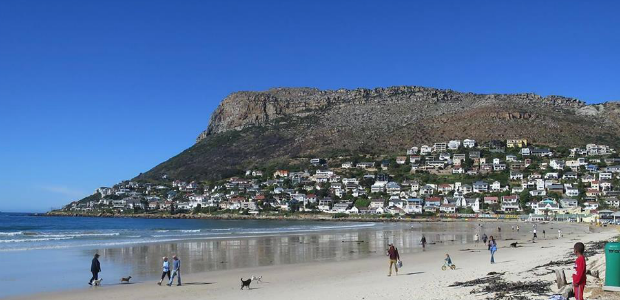(images: Fish Hoek Facebook | iStock)
A historic decision by the Western Cape Liquor Appeal Tribunal last week has ended 200 years of Fish Hoek having no bottle store.
Gary Williams and Julian Hobson, owners of the Pick n Pay franchise in the town, appealed the decision of June this year to refuse them a liquor licence for a separate bottle store. This decision has now been overturned by the Appeal Tribunal meaning that Williams and Hobson can start selling alcohol in Fish Hoek Arcade as of 2019.
Restriction from selling alcohol
Up to this point, alcohol has only been sold in restaurants in the area. This is because of a 200-year-old restriction in the title deeds of all Fish Hoek properties which reads “dat hy aldaar geen tapneering zal mogen drijven”. This has generally been translated into English as “not keep a public wine house” on the property, however a new interpretation by Prof Dr JC Conradie, a retired professor of Afrikaans linguistics from Johannesburg University, and presented by liquor lawyer Danie Cronje of Danie Cronje Attorneys argues that this restriction actually applies to on-consumption only. As such, Fish Hoek’s 9 other liquor licence holders (1 hotel, 6 restaurants and 2 restaurants/pubs) were really the ones intended by the original restrictions and since they have been trading for many years, this removes any reason for a refusal in respect of an off-consumption licence as well.
Residents of Fish Hoek resist
Some residents of Fish Hoek are unhappy by this decision with local resistance lead by Mr DG Moore. His group, Dry Fish Hoek, has contended that the original wording was reinforced in the 1928 Liquor Act and that they are merely applying the letter of the law. In addition, they also believe that there is marketing value in being a ‘dry’ town. However, they do concede that this view is not necessarily shared by all residents, admitting that opposition to the proposed Pick n Pay licence was considerably less than five years ago when they successfully blocked an application by Tops at Spar. This change is attributed to a change in demographics and different age profiles in the region.
In the public interest
According to Williams and Hobson, their inability to sell alcohol is actually proving detrimental to the needs of their customers, quoting “public opinion does not necessarily equate to the public interest.”Fish Hoek is the transport hub for the Cape Peninsula meaning that around 40% of the supermarket’s customers are people passing through the town and wanting to take that opportunity to do their shopping. Since many of those commuters don’t have cars, the ability to do all their shopping at one destination will reduce their costs of public transport and thus being able to buy alcohol at the same time as their groceries would, therefore, be in the interest of the wider Fish Hoek community. The decision also noted that elsewhere in the country, people want to purchase alcohol at the same time as their food and other household goods and there was no reason for Fish Hoek to differ from such clear national trends.”
According to Danie Cronje, this decision now opens the door to licence applications in other ‘dry’ areas of the Western Cape such as Camps Bay and Pinelands. Although neither area has historic restrictions like Fish Hoek, they both have ratepayers associations who object to the presence of a liquor store. However, following this decision and taking into account the needs of the wider community, many of whom work in those areas whilst living elsewhere, it may be that a liquor store could now be judged as being in the public interest there as well.
SHARE your thoughts and opinions on this down in the comments section below!

